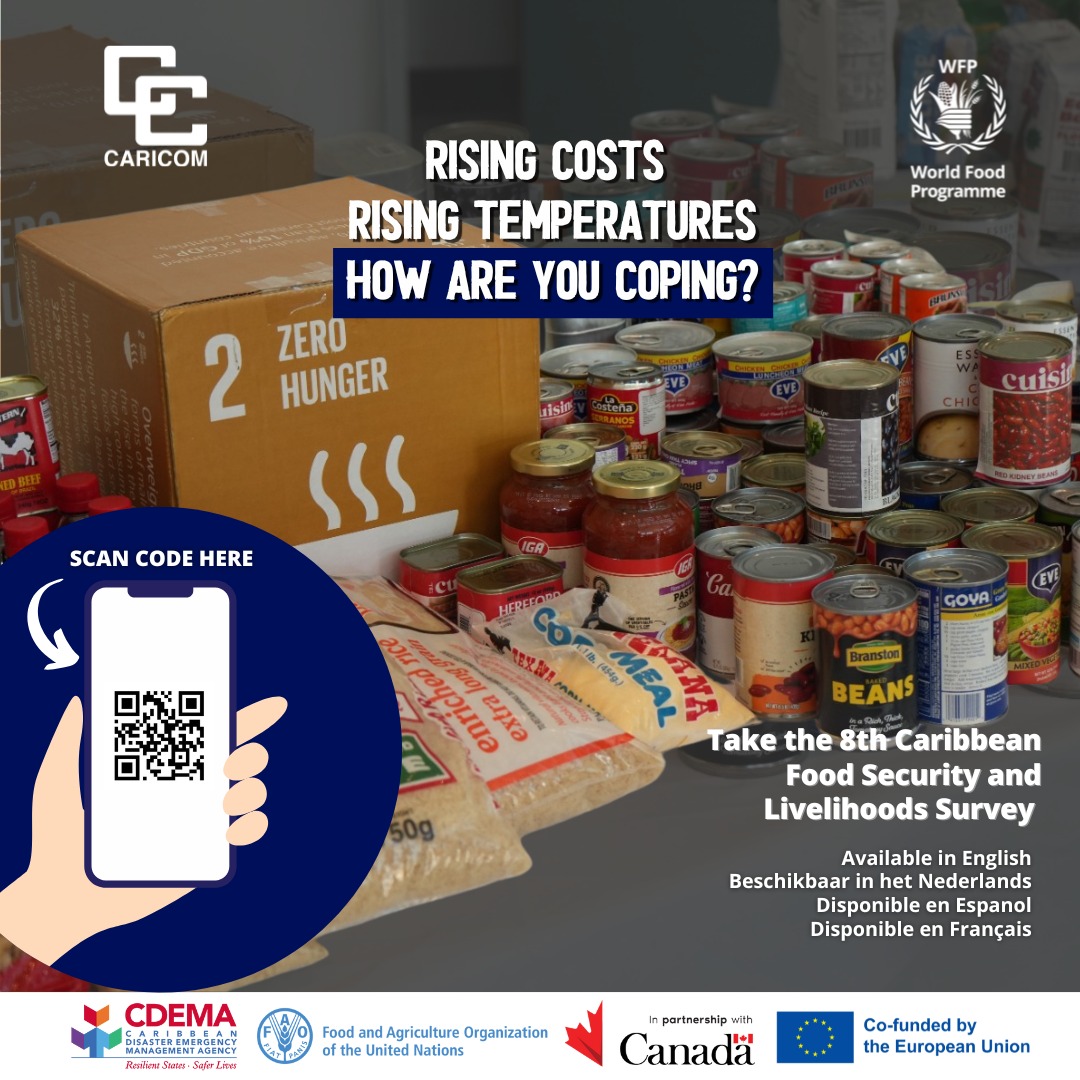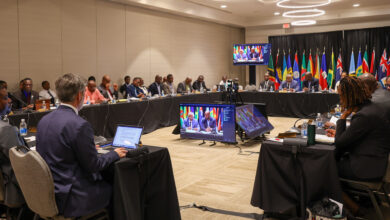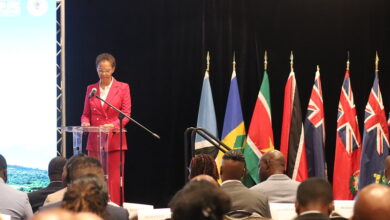The Caribbean Community (CARICOM) through its continued partnership with the United Nations World Food Programme (WFP), the Caribbean Disaster Emergency Management Agency (CDEMA) and the Food and Agriculture Organisation of the United Nations, is conducting another round of data collection for the Caribbean Food Security and Livelihoods survey.
First introduced in 2020 during the COVID-19 pandemic, the survey collects data from respondents across the English- and Dutch-speaking Caribbean.
As the region continues to address the impacts of environmental issues, global conflicts and economic shifts, there is an interest in understanding how external changes can impact access to food across the region. In addition to looking at trends in access to food, the survey has focused on the impact of changing conditions in key sectors such as agriculture and fishing.
“The Caribbean cannot afford to slow down its efforts to upgrade the regional food system. Continued impacts from global factors are a constant reminder that the region is highly vulnerable. As small open economies, regional collaboration and cooperation, using innovative technology, will provide critical advances towards food sovereignty,” said Dr. Wendell Samuel, Assistant Secretary-General, Economic Integration, Innovation and Development, CARICOM Secretariat.
Analysis for data collected from each of the previous seven rounds of the survey is publicly accessible through a dashboard. With the dashboard, the public can access country-specific findings with the option to look at the findings across different categories including gender, age and the main language spoken. In addition to data on food security, the data in the dashboard provides key insights into the impact of natural hazards, and access to markets for shopping. The dashboard can be accessed here.
Speaking about the 2025 survey, WFP representative and Country Director, Brian Bogart stated: “We at the World Food Programme are committed to supporting CARICOM’s work to enhance food security. The data from this survey consistently provides timely information to assist in designing programmes to reach those most in need before a crisis.”
The public is reminded that all survey responses are anonymous. The survey, accessible here, is open to all Caribbean residents aged 18 and older. To ensure accessibility, it is available in English, Spanish, French, and Dutch.
The survey is conducted through continued partnership with the Government of Canada, the European Union and other humanitarian partners and governments in the region.






